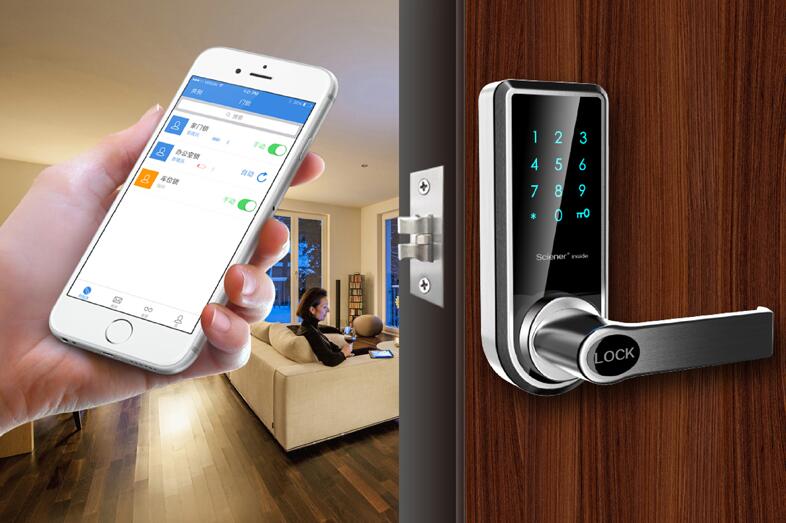When it comes to safeguarding your business assets, investing in high-security locks for retail stores is a fundamental step. These locks provide a robust layer of protection against unauthorized access, theft, and vandalism. In this article, we will delve into the various aspects of high-security locks, their importance, and how they can be implemented effectively in retail stores.

Understanding High-Security Locks
High-security locks are designed to offer superior protection by incorporating advanced technology and materials. They are engineered to resist tampering, picking, and forced entry. Unlike standard locks, high-security locks come with features such as key control systems, which prevent unauthorized duplication of keys. This ensures that only authorized personnel have access to your store.
Key Features of High-Security Locks
- Drill Resistance: Many high-security locks are equipped with hardened steel inserts to resist drilling.
- Pick Resistance: These locks use complex mechanisms that make them difficult to pick.
- Key Control: With patented keyways, unauthorized key duplication is nearly impossible.
- Reinforced Materials: High-quality metals and alloys offer enhanced durability.
The Importance of High-Security Locks in Retail Stores
Retail stores are often targets for theft and burglary due to the high value of products they house. Implementing high-security locks can significantly reduce the risk of break-ins. These locks act as a strong deterrent to potential intruders, making it clear that accessing the store will be a challenging task.
Cost-Effectiveness of High-Security Locks
Though the initial investment in high-security locks may be higher compared to standard locks, the long-term benefits outweigh the costs. By preventing theft and reducing insurance premiums, these locks save money in the long run. Additionally, they offer peace of mind, knowing that your store is well-protected.
Types of High-Security Locks Suitable for Retail Stores
There are several types of high-security locks that are ideal for retail environments. Each type offers unique advantages, catering to different security needs.
Electronic Locks
Electronic locks provide keyless entry, which enhances security and convenience. They can be programmed to allow access to specific individuals at certain times, offering flexibility in managing access control.
Deadbolt Locks
Deadbolt locks are known for their strength and reliability. They are a popular choice for retail stores due to their ability to withstand forceful entry attempts. Learn more about their benefits on deadbolt high-security locks page.
Biometric Locks
Biometric locks use fingerprint or facial recognition technology to grant access. This eliminates the risk of lost or stolen keys and provides a high level of security.
Padlocks
For additional security, high-security padlocks can be used on gates, storage units, and other valuable areas. They are designed to resist cutting and sawing attempts, ensuring maximum protection.
Implementing High-Security Locks in Retail Stores
Implementing high-security locks requires careful planning and consideration. Here are some steps to guide you through the process:
Assess Your Security Needs
Evaluate the specific security requirements of your store. Consider factors such as the store’s location, the value of goods, and the level of risk involved.
Consult with Security Experts
Engage with security professionals to gain insights into the best security solutions for your store. They can conduct a thorough assessment and recommend suitable lock systems.
Regular Maintenance
Ensure regular maintenance of your locks to keep them in optimal working condition. This includes lubrication, cleaning, and addressing any signs of wear and tear promptly.
Employee Training
Train your employees on the importance of security and how to operate the high-security locks effectively. This ensures that everyone in the store is aware of the security protocols.
Additional Security Measures for Retail Stores
While high-security locks are a critical component, integrating other security measures can bolster overall protection.
Security Cameras
Install security cameras at key entry points and within the store to monitor activities. This acts as a deterrent and provides valuable evidence in case of incidents.
Alarm Systems
Alarm systems alert you and authorities in the event of unauthorized access. They are a crucial addition to high-security locks. Explore more on high-security locks with alarms.
Lighting
Ensure the store is well-lit, especially at night. Adequate lighting reduces the chances of break-ins by eliminating dark hiding spots.
Security Personnel
Consider hiring security personnel to provide an additional layer of protection. Their presence can deter potential intruders and respond quickly to any security breaches.
Conclusion
In conclusion, investing in high-security locks for retail stores is a proactive step towards safeguarding your business. These locks offer unmatched protection, ensuring that your store remains secure from unauthorized access and theft. By incorporating high-security locks along with other security measures, you can create a comprehensive security strategy that provides peace of mind and protects your valuable assets.

FAQs
What makes high-security locks different from standard locks?
High-security locks are designed with advanced features such as key control systems, drill resistance, and pick resistance, making them more secure than standard locks.
Are high-security locks cost-effective in the long run?
Yes, while the initial cost may be higher, high-security locks reduce the risk of theft and can lower insurance premiums, making them cost-effective over time.
How often should high-security locks be maintained?
Regular maintenance, including lubrication and inspection for wear and tear, should be conducted at least annually to ensure optimal performance.
This article contains affiliate links. We may earn a commission at no extra cost to you.





